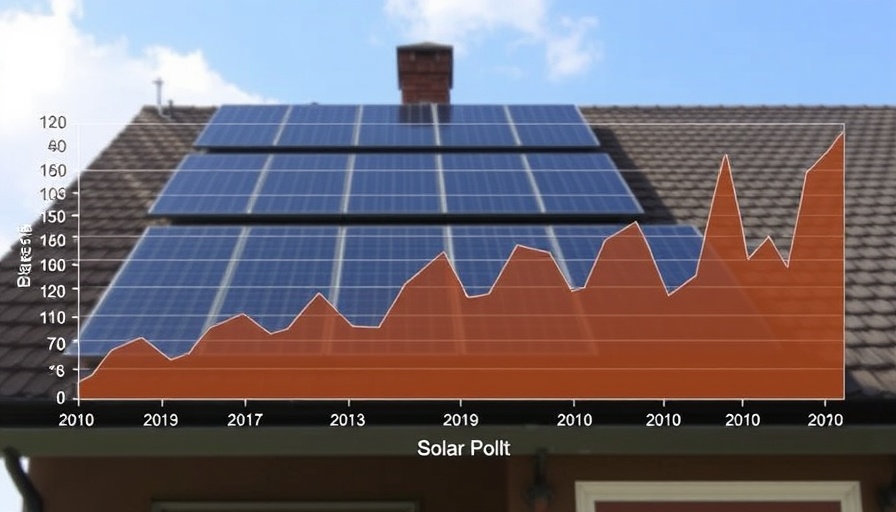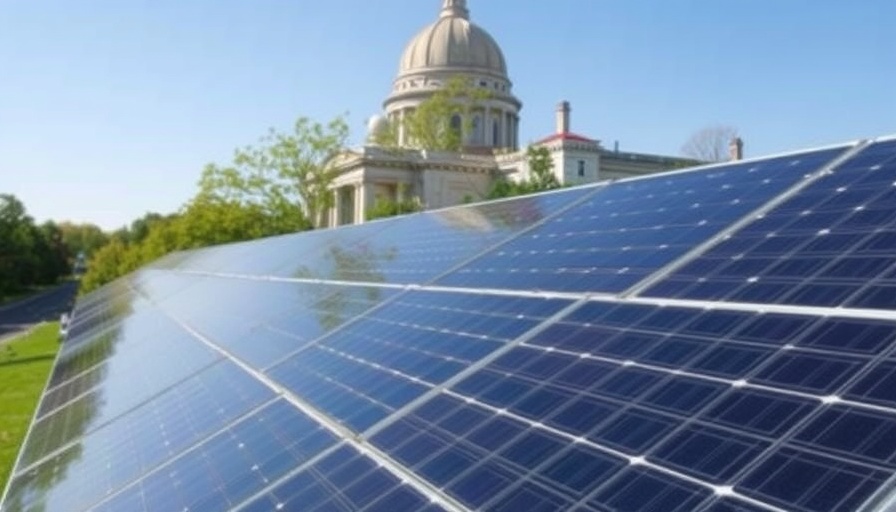
Understanding Your Solar Output: What's Really Happening?
Homeowners investing in solar panels often expect that generating more energy should lead to lower electricity bills. A recent discussion on Reddit sheds light on a puzzling phenomenon: users may find that they're consuming more electricity from the grid even when their solar panels produce excess energy. This article breaks down the possible reasons and provides insight into maximizing your solar energy usage.
The Reality of Solar Power Consumption
When people install solar panels, they hope to harness the sun's energy to power their homes and reduce their reliance on grid electricity. However, anecdotal evidence suggests that some homeowners notice their electricity usage increases concurrently with higher solar production. This can feel counterintuitive, leading to confusion and frustration about their energy bills.
Why Does Increased Solar Generation Lead to Higher Usage?
Several factors can explain this counterintuitive situation. Firstly, as solar output increases, homeowners might feel encouraged to run energy-intensive appliances, such as air conditioning or laundry machines, during peak production times. This behavioral shift can lead to a higher overall usage of energy, negating savings.
Moreover, if systems are not optimized to use direct solar energy efficiently, any excess not consumed could be fed back into the grid at compensation rates that may not reflect energy costs paid by the homeowner. Understanding your utility’s net metering policy can clarify how energy credit balances work.
Examining Your Energy Habits
A deeper investigation into personal consumption habits may reveal why energy usage spikes. Homeowners should look at hourly usage patterns aligned with solar production times. Smart home technology can assist in monitoring and analysis, enabling users to shift heavy usage to peak sunlight hours when solar generation is highest.
Maximizing Your Solar Investment
It’s essential to view solar panels as just one part of an energy ecosystem. Homeowners can take several steps to maximize their investment:
- Adjust Consumption Patterns: Timing energy-intensive tasks to coincide with peak solar production can reduce grid reliance.
- Invest in Storage Solutions: Battery systems allow homeowners to store excess solar energy for use during low production times or at night.
- Conduct Regular Energy Audits: Regular assessments of home energy efficiency can lead to significant reductions in overall consumption.
The Importance of Battery Storage
Battery storage systems are becoming increasingly popular as they allow homeowners to utilize solar energy even when the sun isn’t shining. This technology can help in flattening energy costs over time. By investing in battery systems, homeowners not only maximize their energy independence but also have backup power in emergencies.
Community Insights: Shared Experiences
Engaging with community forums like Reddit can provide valuable insights. Many users benefit from sharing experiences, troubleshooting issues, and discussing solutions related to solar energy. This collective knowledge can help everyone become more conscious of their energy use and find strategies that work.
Future Trends in Solar Energy
As technology continues to evolve, homeowners can expect improvements in solar panel efficiency and energy management systems. Innovations in smart grid technology might allow for better tracking and distribution of energy based on real-time needs and production levels. This could potentially lead to more optimized energy usage patterns and a reduction in frustrating billing surprises.
For homeowners looking to engage with their energy consumption more actively, understanding these complexities is essential. By mastering the timing of energy use, investing wisely in storage solutions, and participating in community discussions, one can fully benefit from the investment in solar technology.
Are you ready to take control of your solar energy usage? Investigate your consumption habits today, and explore your options for battery storage and energy management systems. Every step you take can contribute to more significant energy savings and sustainability.
 Add Row
Add Row  Add
Add 



 Add Row
Add Row  Add
Add 
Write A Comment